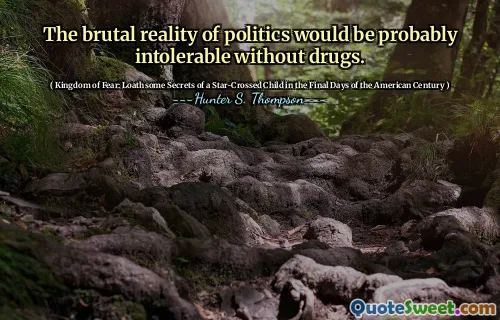
Is Tony Blair of the Labour party? The answer to that is profoundly 'yes', but that is not how, sentimentally, he is regarded in the Labour movement generally.
This quote delves into the complex relationship between political identity and public sentiment within a political movement. Tony Blair, a prominent figure in the Labour Party, clearly belongs to the party by official designation, policies, and leadership. However, the perception of him within the core Labour movement is nuanced and somewhat conflicted. This reflects a common phenomenon in politics, where allegiance to a party does not always equate to universal admiration or emotional endorsement. Blair's tenure saw significant political and ideological shifts—for instance, his endorsement of foreign policy decisions like the Iraq War, which drew criticism from party members and supporters who held differing views. These divisions highlight that political affiliation often intertwines with deeper values, beliefs, and emotional connections that may conflict with incumbent leadership decisions. The statement underscores the importance of understanding not just the formal labels and affiliations but also the underlying sentiments and cultural attitudes that influence the unity and identity of a political movement. Moreover, it illustrates how figures who are technically part of a movement can be seen through a lens of skepticism or ambivalence, shaped by actions, policies, and ideological disputes. It prompts reflection on the nature of political loyalty and whether party membership always aligns with approval or admiration. The quote reminds us that political identity is multifaceted—comprising both official roles and the collective emotional and ideological sentiments of the followers. Such dynamics are critical in understanding not just the Labour movement but broader political spectra, where perceptions often sustain or undermine leadership regardless of formal status.











